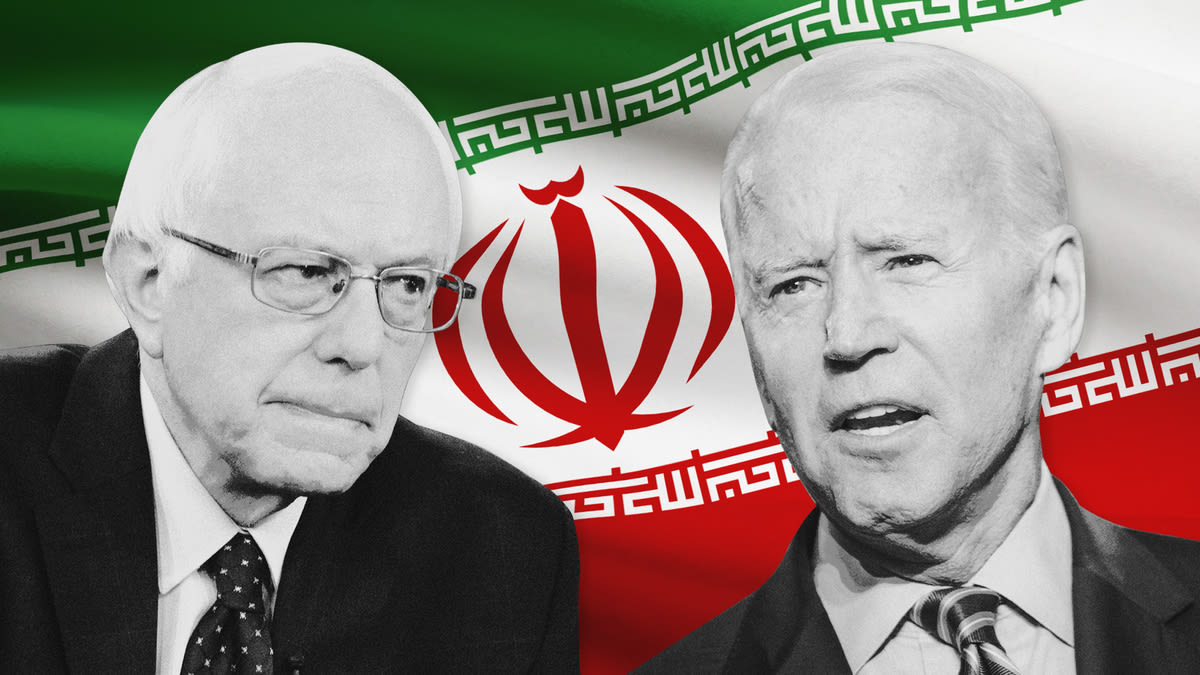On the surface, the Democrats sounded more or less like one another when they denounced the danger that might result from Donald Trump’s hit on Qassem Soleimani. But there were some subtle differences that they didn’t get into on cable news. They’re revealing, and they reflect the differences in the party on questions of war and peace and fighting terrorism, with Joe Biden and Bernie Sanders representing the two tent poles—at a moment when Sanders has started to attack Biden for the first time more generally.
The poles aren’t “hawk” and “dove.” That’s too simplistic. Hardly anyone in this party is a hawk anymore. They saw the disaster—and perhaps more to the point the political liability—that Iraq became. It seems pretty clear no Democrat wants to repeat that experience with the far larger and stronger nation of Iran.
So to some extent they’re all doves. But there are different categories of doves. There are establishment doves and anti-establishment doves; consensus doves and anti-consensus doves.
Let’s start with Joe Biden. He’s the consensus dove. He was very critical of Trump’s move, but he led his initial statement with three tough sentences about Soleimani—“no American should mourn his passing” and so on. That’s a very foreign-policy-establishment kind of approach. His statement went in for one line of hot rhetoric that got repeated everywhere (Trump “just tossed a stick of dynamite into a tinderbox”), but mostly his words were the words of a longtime member of the Council on Foreign Relations crowd.
Now look at Bernie Sanders’ initial statement, which opens like this: “When I voted against the war in Iraq in 2002, I feared it would lead to greater destabilization of the region. That fear unfortunately turned out to be true.”
That’s an anti-consensus dove. It’s about as anti-CFR as a statement is likely to be under these circumstances. No good riddance to Soleimani. Not a syllable. From that first reaction Thursday night to Friday afternoon while I was writing these words, Sanders issued seven tweets from his campaign (non-Senate) account, and there was still no mention of how good it was to get Soleimani. An obviously conscious decision to signal that he’ll stand outside the foreign policy consensus and not join in the throat-clearing chorus and say, “Well of course he was awful but…” (Elizabeth Warren split the difference. She opened her initial tweet with one sentence of Soleimani denunciation.)
But the more interesting thing about Sanders’ statement is the way he leads with his vote against the Iraq War. In a later tweet, he quoted himself from 2002: “War must be the last recourse in our international relations. And as a caring nation, we must do everything we can to prevent the horrible suffering that a war will cause.”
He was right about all that—and Joe Biden was wrong. He was one of the wrongest Democrats there was at the time. So one can’t blame Sanders for playing that card. If the question is “what’s your foreign policy credential,” that’s probably the best card he’s got, or at least the one that the greatest number of people will respond to. He actually has a better and more recent card—his work on the War Powers resolution on Yemen, when he didn’t just cast a vote and give speeches but helped lead an actual bipartisan coalition that tried to do something really good (Trump vetoed it). But most people don’t know about the horror that’s been unfolding in Yemen.
So I wonder if Iraq still resonates all these years later. Barack Obama used it to great effect against Hillary Clinton in 2008. Sanders himself used it to pretty good effect, even if he ended up losing to Clinton, in 2016.
Will it work against Biden, 17 years after the war? I honestly don’t know. Rank-and-file Democrats were and are strongly against that war, of that there’s no doubt (I was, too). But 17 years is a long time. It’s only natural that most people just don’t feel as passionately about it as they once did.
What people will feel plenty passionate about, though, is a possible war with Iran. All the candidates will check that box in the coming days, or indeed have already checked it.
But there’s another box, one that’s a lot harder to measure. An event like this makes voters start to think about a question most of them haven’t had reason to think much about yet: Which of these Democrats do I trust on these matters of war and peace; trust to get us out of whatever mess Trump makes?
The conventional wisdom would say that Biden would be most likely to benefit, for the simple reason that he has by far the most foreign policy experience. He’s logged the most time in Iraq; he was part of the administration that negotiated the Iran nuclear deal, i.e. that actually waged peace, which Democrats like; he’s undoubtedly called far more grieving mothers of soldiers than all the other candidates; and so on. He’s just more associated with foreign policy in voters’ minds (for better and worse!), and it’s hard for opponents to dislodge those associations.
Later on Friday afternoon, Sanders went even farther back into history, tweeting: “I was right about Vietnam. I was right about Iraq. I will do everything in my power to prevent a war with Iran. I apologize to no one.”
But no one’s asking for an apology, and starting (or continuing) a war isn’t the issue. No Democrat wants that. Voters will want to know not just what he plans to avoid, but what he’ll do. He, and Warren and the others, will need to talk about Iran and the larger Middle East in ways that go beyond platitudes and evince a real shrewdness about what the United States’ posture in the region needs to be (remember: only half of Democrats are liberal; 35 percent are moderate, and 15 percent conservative).
Foreign policy is never a top-tier voting issue in peacetime, but given who Trump is and what he’s capable of (and what Iran is capable of), it could become the issue this spring—and ironically, the nomination battle that we all thought would be entirely about domestic agendas will be barely about them at all.

